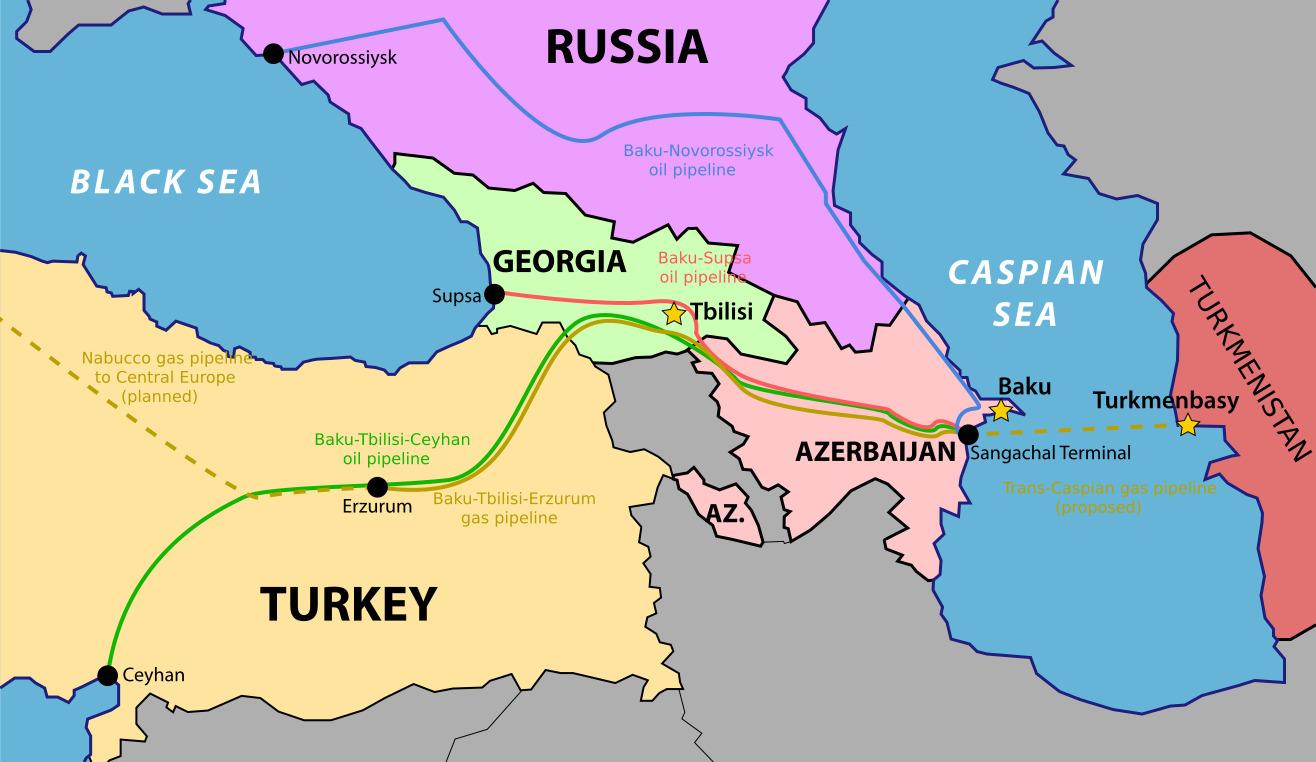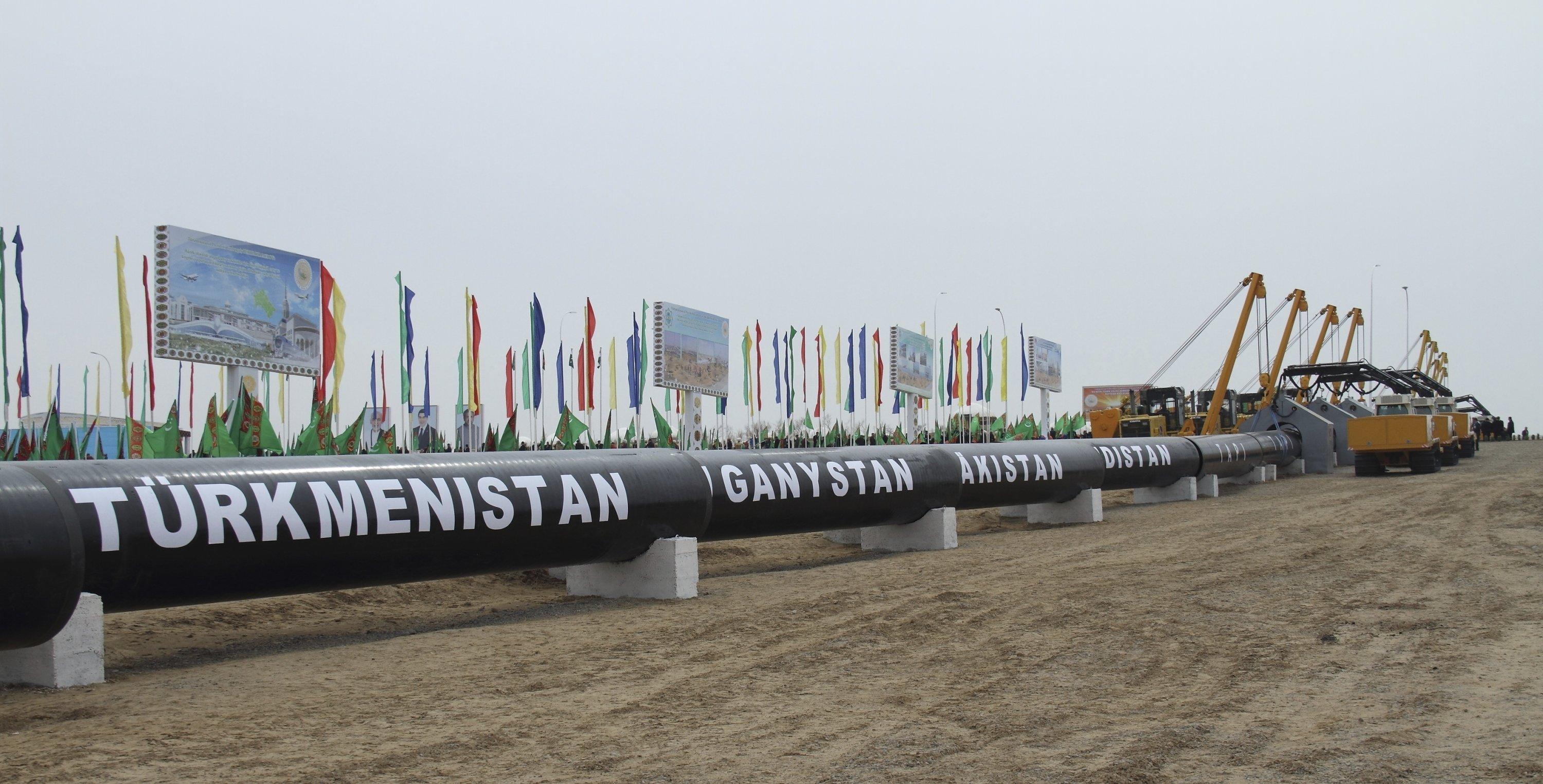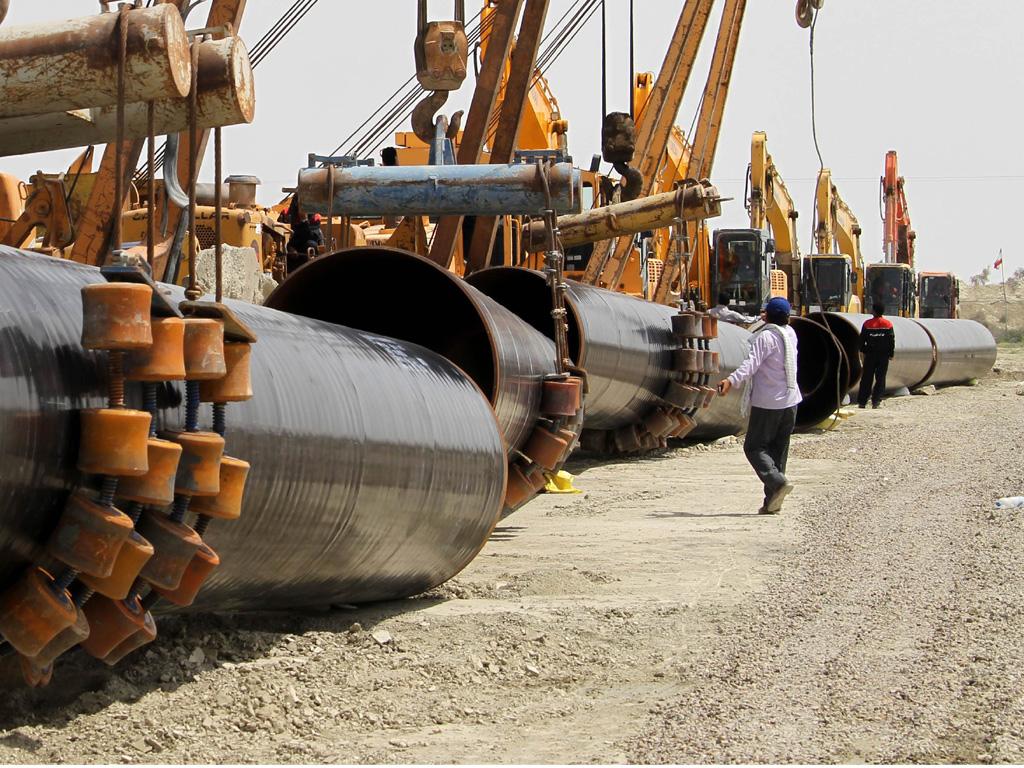Turkmen gas to Europe’s rescue? Prospects and limitations
As the doomsday scenario of a chilly winter without Russian gas continues to prey heavily on the minds of those responsible for the EU’s energy policy, a wide array of options, some previously disparaged, are being contemplated with unflinching urgency.
The idea of integrating the vast gas fields of Turkmenistan, across the Caspian and through Azerbaijan and Türkiye with European energy architecture has traditionally been viewed as a largely esoteric scheme, bedevilled with a litany of practical constraints.
The difficulties have not gone away, but the urge to exploit the possibilities offered by this has assumed heightened significance in light of the EU’s exacerbating predicament. If previous schemes pertaining to Turkmen gas were linked with the costly and improbable Trans-Caspian Gas Pipeline (TCGP) project, now much humbler and more practical options seem to be in the offing.

Europe at present
As Europe is cracking under the strain of its bold ambition to extricate itself from dependency on the Kremlin-dominated web of energy supply routes, economic consequences continue to cause massive concerns.
As of June 13, one euro is worth one dollar for the first time in two decades, and there is an exponential fear that the economic sanctions imposed on Russia will, amongst other factors, induce a full-blown recession at home.
Charles-Henry Monchau of the Swiss private bank Banque Syz, in an interview with Bloomberg, stated that the present state of affairs entrapping Europe can be described as a “vicious cycle”, as higher energy prices drive the euro lower, and, in turn, the weaker euro renders energy imports more expensive.
Europe is urgently seeking new gas supplies with the knowledge that no alternative source or alternative sources cumulatively will or can be a replacement for Russian energy, in the short term.

Previous endeavours
Although it cannot be ascertained with any degree of certainty if the whole scheme has been agreed with the EU, Ankara has seriously proposed the idea of the delivery of Turkmen gas westward for the first time in two decades.
On June 2, Turkish Vice President Fuad Oktay, speaking in the Turkish Embassy in Ashgabat stated that three separate options, namely delivery via "a pipeline", "a swap deal" and "a pipeline combined with shipment" were being studied and the principal acquiescence of the Turkmen president was secured.
The plan of connecting the gas-rich Central Asian nation’s resources with European markets has a history which is full of fruitless debates and futile hopes. The idea has historically been viewed as deeply theoretical and largely impracticable.
The rationale militating against such a development included Ashgabat’s perceived recalcitrance, a plethora of geopolitical constraints, linked with the diplomatic pressure exercised by Russia and, to a certain extent, by Iran, together with an absence of infrastructure, collectively making the whole endeavour impossible and a flimsy opportunity for investment.
The prospects for the westward delivery of Turkmen gas were first given due consideration in 1999, when Ankara expressed its explicit backing for a project proposed by a consortium of Shell, Betchell and GE for the construction of a major pipeline across the Caspian Sea, otherwise known as the Trans-Caspian Gas Pipeline (TCGP) to enable the transport of Central Asia’s rich resources to Azerbaijan and Turkiye, with Europe envisaged as a potential final destination.
In view of Azerbaijan’s newly discovered Shah Deniz field, the idea was shelved. Other than that, the project was objected to by Russia and Iran on two grounds, namely on the basis that all the Caspian Littoral States were to agree to a seabed pipeline, together with alleged environmental concerns, which appeared more contrived than genuine.

Three-pronged scheme
The concept of the aforementioned TCGP remains highly unlikely due to the massive cost it would incur. In this vein, it could be surmised that the pipeline element ingrained in Fuat Oktay’s proposal was not related to the mega-project in question.
David O’Bryan, writing for Eurasianet, is of the opinion that it is probable that reference was being made to the Trans-Caspian Interconnector (TCI), proposed last year by the Florida-based Trans Caspian Resources (TCR).
The plan includes a relatively short 48-mile pipeline across the Caspian Sea which will carry currently flared gas, emitted as a result of oil drilling, from Turkmenistan’s Magtymguly oil field to Azerbaijan’s BP-operated Azeri-Chirag Guneshli oil and gas field, from where it will move westward via existing pipelines.
According to TCR’s own provisional estimate, the proposed pipeline could carry between 10-12 bcm per annum, starting with associated gas.
The second element is more or less straightforward and refers to an existing trilateral swap deal agreed by Turkmenistan, Iran and Azerbaijan in November 2021. At present, Ashgabat sends to Tehran 1.5-2 bcm annually, which the latter transports to its northern neighbour. Some energy analysts suggest the overall volume could be doubled.
The Turkish Vice-President's third suggestion of "ships and a pipeline" is somewhat opaque. It could perhaps be surmised that the shipment part of this design would probably entail the shipment of "compressed natural gas", the option hailed for its low cost and practised worldwide as a successful model.

In all guises and implementation modes, the three-pronged proposition involves the Southern Gas Corridor (SGC), which is an indispensable artery in the westward transport of Turkmen gas obviating Russia. Presently, the Trans-Anatolian Pipeline (TANAP) offers around 15 bcm a year of spare capacity.
The export potential of the westernmost section of the SGC, the Trans-Adriatic Pipeline (TAP), which currently carries around 10 bcm per annum, is projected to be doubled; according to some estimates, it could even be tripled at some point in the future.
It should also be borne in mind, as a first stage, that the vital link enabling the transport of Turkmen gas to Azerbaijan is yet to be worked out, as without completion of that critical phase, any asseveration as to European prospects of Turkmen gas will be nothing but an example of hoary thinking. The present climate and the measurably improved relations between Baku and Ashgabat give rise to the hope that some of the difficulties previously deemed intractable can be surmounted in the very near future.








